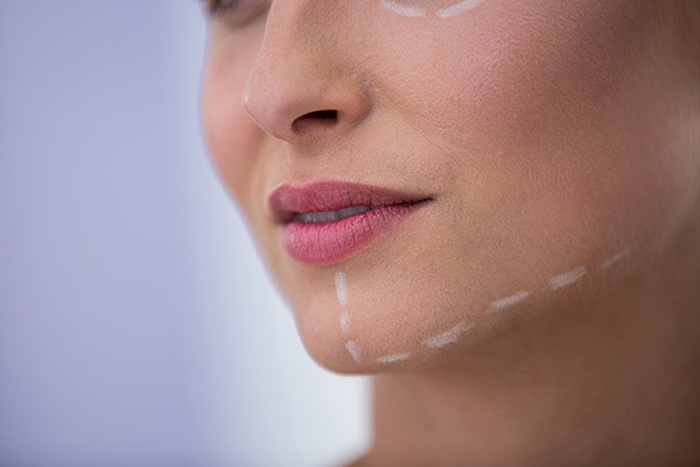
JAW-JOINT DISORDERS & PROSTHESIS
The Temporomandibular Joint (TMJ, Lower Jaw Joint) is a dynamic living tissue that connects the lower jaw with the skull. Jaw joint disorder is a syndrome of pain and dysfunction that occurs in chewing muscles. Jaw joint disorders negatively affect a major part of the population today. It is caused by the deterioration of the balance between the joint surface and the disc. In this condition, not only simple symptoms such as hearing clicking sound but also serious symptoms such as locking the jaw can be observed. It can take place for many reasons (accidents, wrong treatments, stress, habits, etc.). Jaw joint disorder continues to increase over time.
What are the problems/diseases caused by jaw joint disease?
- Sound of the chin while chewing
- Locking of the joint, making it difficult to open or close your mouth
- Jaw Pain
- Restricted mouth opening
- Aching pain in and around your ear, rumbling sounds, feeling of blockage and pressure
- Sudden changes in the way the upper and lower teeth closing
- The facial asymmetry that may be due to hyperplasia in the facial muscles
- Deviation (slippage) in the jaw during mouth opening
- Pain felt when closing your mouth
- Difficulty chewing or pain while chewing
- Difficulty and pain in opening the jaw, usually when waking up in the morning
- Difficulty yawning
What are the causes of jaw joint disorders?
- Dental surgeries where the mouth is kept open for a long time, such as the operation of wisdom tooth extraction
- After orthodontic treatment,
- Covers and fillings that are not made correctly,
- Eating lips,
- Lying face down,
- Resting chin lean on the hand
- Chewing gum for a long time,
- Exposure to the wind for a long time (especially for motor users)
- Slouching
Does jaw joint treatment reduce the pain?
Joint therapy reduces the loads on the joints. It gives the proper chewing habits, stopping the abrasions on the tissues and providing great relief.
How are jaw joint disorders treated?
- Symptomatic treatment
- Treatment of disease-causing causes
- Elimination of preparatory factors
- Treatment of pathological factors
Oral, dental, and maxillofacial surgery specialists who diagnose and treat the jaw-joint disease primarily diagnose the disease and then inform patients about the necessary treatments. After patients accept treatments, the required treatments are performed.
These methods of treatment are aimed to restore the functions of the jaw to regular order. Treatment planning is adjusted according to the cause of the disease and the patient's complaints. It is crucial to plan correctly in this treatment method. Night plaque can be applied to patients who have problems such as clenching teeth or grinding teeth. Treatment can be planned with medication and physical treatments suitable for the jaw muscles. If the pain occurs too much, washing the inside of the joint will reduce the pain. If there are conditions such as trauma or tumour in the jaw, surgical procedures can be applied. If you have complaints, do not hesitate to be examined by our specialist dentist.
What is the Dental Prosthesis?
Prosthetic dental treatment aims to regain the aesthetics, phonation and function that the patient has lost by reconstructing the lost teeth and surrounding tissues inside the mouth. In the prosthesis, while trying to regain the lost functions of the patient, it is also aimed to correct the distorted speech and to improve the aesthetic appearance. In this way, while the oral health lost to a large extent is restored, individuals who have to live with missing or destroyed teeth in the society are also psychologically supported. Because individuals who have to live in this way (even for a while) forget to laugh first. This, in addition to functional impairments, causes damage to self-confidence in people. It is aimed to improve the quality of life of people with various prostheses made for patients of this type.
Types of Dental Prosthesis
1. Fixed Prostheses (crown-bridge-like adhesive prostheses)
2. Removable Dentures (total or partial dentures)
3. Implant prostheses (nails and prostheses placed in the jaw)
1)Fixed Dental Prostheses
Fixed prostheses are a type of prosthesis that can be applied to one or more missing teeth and fixed by adhering to the teeth with support from existing teeth. Crown on a single tooth and bridge restorations applied in missing teeth are also fixed prostheses. "Fixed Prosthesis" has this name because it cannot be removed by the patient.
2)Removable Dental Prosthesis
Removable prostheses are prosthesis made with support from both teeth and the remaining gums and bones in the area of lost teeth, in which the number of lost teeth is not suitable for fixed prosthetic treatment. In cases where there are partial tooth deficiencies, crochet-attached prosthesis and sensitive holders can be used. Total prostheses are used in completely edentulous patients.
3)Implant Prostheses
Prostheses made with support from implants instead of natural teeth are called “Implant Prosthetics”
How are prostheses cleaned?
Cleaning of removable dentures is done with a number of cleaning agents. Prostheses are cleaned by the effervescent tablet that is placed in water. If a prosthesis cleaning agent is not available, the denture can be cleaned with a toothbrush or denture brush. In addition, partial removable dentures can be removed from the mouth and after cleaning the existing teeth in the mouth, the prosthesis can be cleaned and replaced. However, in total prostheses, it will be sufficient for the patient to remove the teeth and rinse their mouth. Having a prosthesis does not mean that you will pay less attention to your oral hygiene and care. On the contrary, regular visits to your dentist will increase the life of your prostheses and protect your oral health.
© COPYRIGHT 2025 ALL RIGHTS RESERVED
Privacy Policy